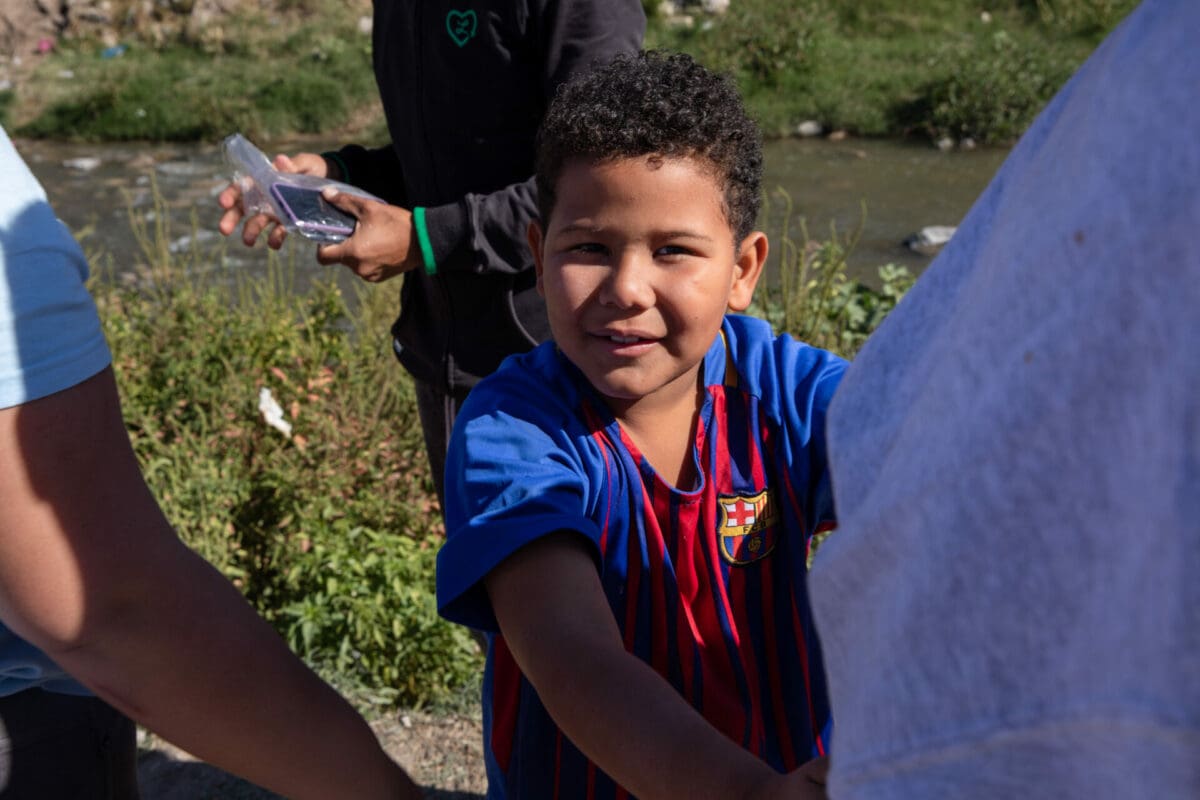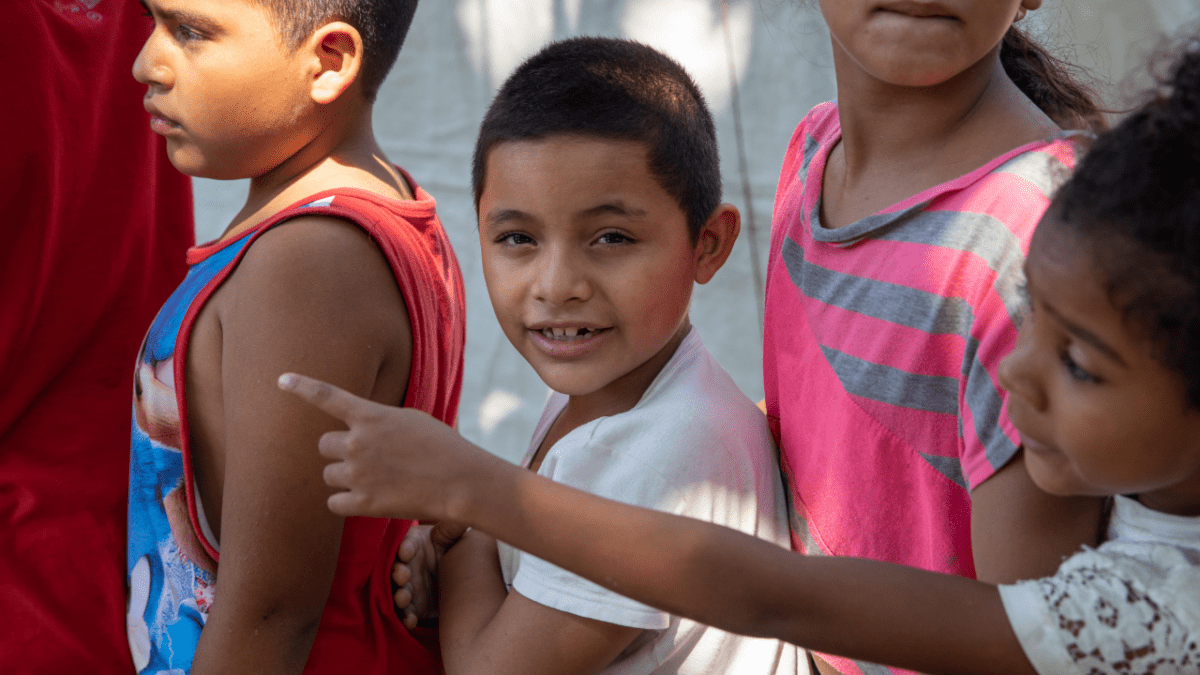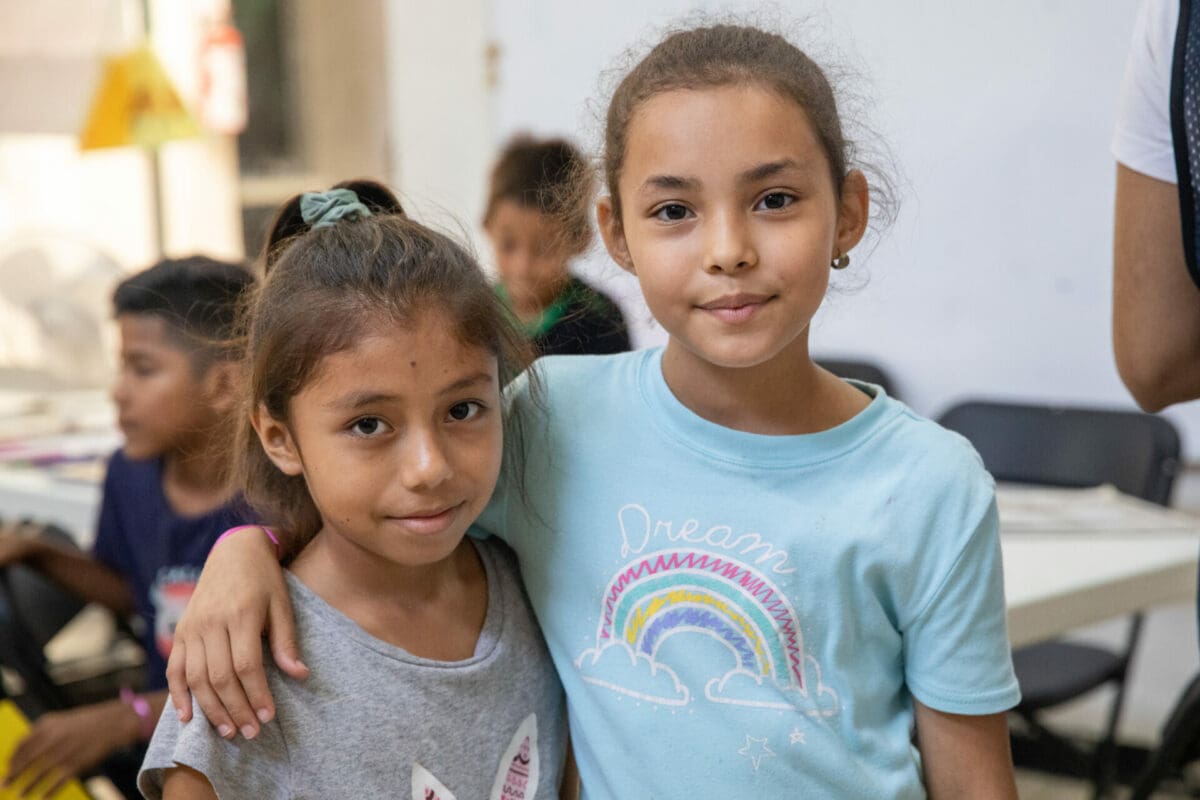In honor of Social Work Month, we had a conversation with Petra Melikantova, Case Manager with KIND in Europe, to learn more about the psychosocial services aspect of KIND’s work with unaccompanied children in Europe. Petra is based in Slovakia and her role is to complement our legal services work, supporting a program practice that attends to the complexity of our clients’ situations and needs with an emphasis on their strengths and resilience.
How do the challenges faced by unaccompanied children in Europe compare to those in the United States, and how does KIND’s approach ensure dignity and self-determination in both regions?
Unaccompanied children in Europe and the United States face similar challenges and vulnerabilities, including risks of trafficking, exploitation, lack of protection, and psychological distress. These adversities often result in traumatic experiences, loneliness, mental health struggles, substance abuse, and, in some cases, radicalization or engagement with anti-system groups.
However, significant differences exist between regions due to variations in child protection systems, migration policies, and available support structures. In Europe, many children on the move arrive due to war. In Slovakia, for example, the majority of unaccompanied migrant children come from Ukraine Slovakia has a structured child protection system and has ratified the UN Convention on the Rights of the Child. Trauma-informed care is still a developing concept in this context, and our hope is to partner with child protection professionals who may benefit from more specialized training. We also need to ensure that we have robust procedural guidance on determining the best interests of the child.
KIND plays a crucial role in advocating for practices aligned with social work values focused on respecting the views and wishes of the child, promoting trauma-informed care, and providing Know Your Rights (KYR) training to ensure that unaccompanied children receive the protection and support they need.
What does respecting a child’s right to self-determination look like in practice? Can you share a moment when a child made a decision that shaped their future?
We continue to tailor an approach that is responsive to European needs, our goal is to prioritize the child’s voice and vision for their future. We are intentional about informing them of the various options and fostering a sense of empowerment to make decisions. Simple actions such as providing information on school enrollment options, for example, and outlining the advantages and disadvantages of different paths, can support a child to make the best-informed decision in a complex process. Rather than pressuring a child to change their decision, we focus on offering alternative solutions and identifying strategies that respect their autonomy and personal reasons for their choices, focused on their overall wellbeing.
What does trauma-informed care look like in KIND’s work in Europe? How does our psychosocial model help children regain a sense of safety and control?
In Slovakia and across Europe, we carefully assess what information is necessary to provide services for unaccompanied and separated children while minimizing the risk of retraumatization. We incorporate mindfulness techniques throughout the legal process and while cooperating with other organizations we encourage children to spend time outdoors, recognizing that physical activity can help regulate stress inherent in their situation. Additionally, we work closely with partner NGOs to strengthen child-centered trauma-informed approaches across provider networks.
What are the biggest systemic differences in how social work is practiced in Europe versus the United States and how does KIND ensure that dignity and self-determination remain at the center?
The structure of social work varies significantly among regions. In Europe, some countries integrate social work within state-run institutions, while others rely more on NGOs. Licensing and certification processes differ as well—some countries require a university degree in social work, while others offer more flexible training pathways. Despite these differences, KIND ensures that respecting the dignity and wishes of the client remain central to its work by advocating for child-centered policies, promoting standardized best practices, and providing training for social workers and legal professionals.
How do you navigate the balance between guiding a child and ensuring they have full control over decisions about their future?
We provide children with comprehensive information about their options while ensuring that they remain the decision-makers in their own lives. This fosters resilience and self-sufficiency while ensuring they feel supported rather than pressured.
If you could share one message with the world about what children on the move truly need, what would it be?
Don’t let them feel completely alone. The deepest harm happens when a child feels like no one is there for them. Your presence alone, offered with kindness, can make all the difference.



